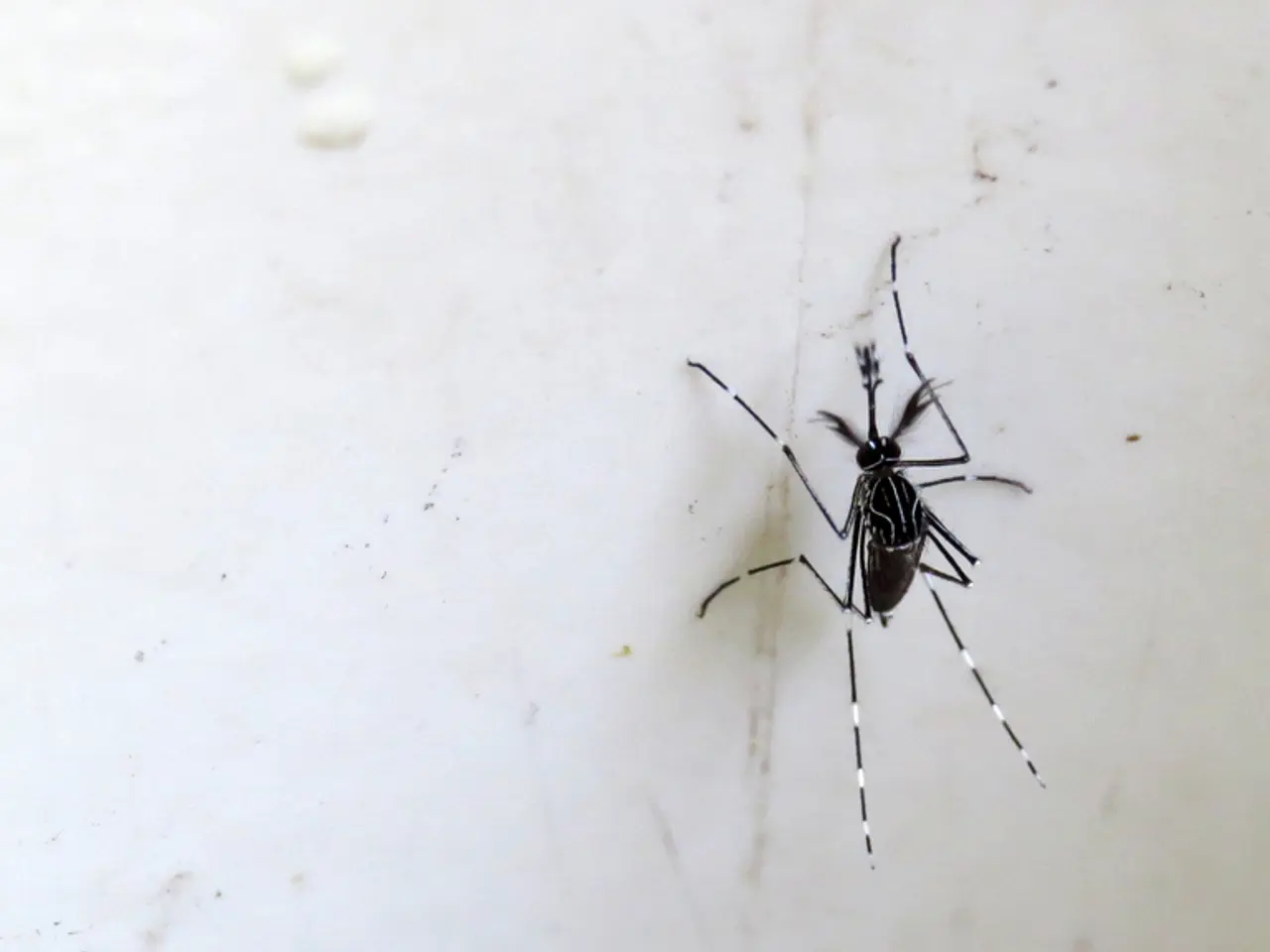Strategies for Travelers to Guard Against Japanese Encephalitis in High-Risk Regions
Japanese Encephalitis (JE), a mosquito-borne viral infection, is prevalent in South, East, and Southeast Asia. With seasonal and regional variations, it's crucial for certain travellers to consider vaccination, especially those planning prolonged stays in endemic areas.
**Vaccine Options**
The primary JE vaccine recommended for international travellers is Ixiaro (IC51), an inactivated, Vero cell culture-derived vaccine. This vaccine is favoured for its safe and immunogenic profile [2][4]. Older, mouse-brain-derived vaccines are less commonly used. In some countries, live attenuated vaccines may be used, but these are less frequently recommended for international travelers [2].
**Vaccination Schedule**
The vaccination schedule varies with age. For adults, two doses, each of 0.5 mL, are given at least 7 days apart, ideally with the second dose administered at least 7 days before travel [4].
**Booster**
A single booster dose can extend immunity for a further 10 years [4]. In some settings, boosters are recommended 1–2 years after the primary series for those at continued risk [3].
**Who Should Be Vaccinated?**
- **Long-term travelers**: Vaccination is recommended for travelers spending a month or longer in rural or endemic areas during the JE transmission season [2][4]. - **Short-term travelers**: Generally, vaccination is not recommended for short-term urban travelers, but individualized risk assessment is advised [4]. - **Laboratory workers**: Those with potential exposure to the JE virus should also be vaccinated [2].
**Additional Prevention Measures**
Regardless of vaccination, protection against mosquito bites (e.g., repellents, nets, clothing) is essential, as most infections are asymptomatic but can rarely cause severe disease [3]. It's also important to consider local epidemiology, as JE risk varies by region and season; up-to-date advice from travel health clinics is recommended.
**Summary Table**
| Vaccine Name | Type | Schedule (Adults) | Booster | Notes | |--------------|-----------------|---------------------------|------------------------|---------------------------------------------| | Ixiaro (IC51)| Inactivated | 2 doses, ≥7 days apart | Single dose, 10 years | Mainly for long-stay or rural travelers [4] |
In summary, the inactivated Ixiaro (IC51) vaccine is currently recommended for travelers to JE-endemic areas of South, East, and Southeast Asia who will have prolonged or repeated exposure, especially in rural settings [2][4]. A standard two-dose primary series is advised, with a booster available for long-term protection [4]. Mosquito bite prevention remains a critical adjunct measure [3].
Travelers are encouraged to consult their GP before traveling to high-risk areas for Japanese encephalitis to discuss vaccination options. The NHS advises travellers to be cautious of Japanese encephalitis in Japan, China, South Korea, India, Indonesia, Southeast Asian countries such as Thailand, Vietnam, and Malaysia.
- Maintaining a healthy lifestyle, which includes regular exercise and fitness routines, can help strengthen one's immune system, potentially reducing the risk of contracting Japanese Encephalitis.
- In addition to vaccination, practicing good sleep hygiene is essential, as a well-rested body is often better equipped to fight off infections.
- For travelers, adhering to health-and-wellness guidelines, such asusing insect repellents, wearing protective clothing, and staying up-to-date with travel advisories, can help minimize the risk of contracting Japanese Encephalitis and ensure a safe journey.




